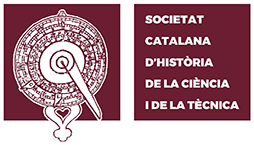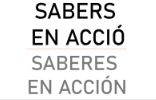Col·loquis de la SCHCT (2020 – 2021)
Cicle: Situating space technology between lab and field sciences
“The smallest unit of landscape: a concept negotiated between field sciences, aerial photography and remote sensing through satellites”
Ponent: Chunglin Kwa (University of Amsterdam)
Dimecres 17 de febrer de 2021, 16h.
Sessió online, amb inscripció prèvia (abans 14:00 del 17/02/21)
(atenció, per motius de ciberseguretat cal inscriure´s abans de les 14:00 del 17/02/21. Aquesta inscripció és gratuïta i les persones inscrites al seu correu electrònic rebran, després de les 14:00, l´enllaç Zoom per a poder atendre el seminari. Per favor, reviseu també la bústia de correus no desitjats si l´enllaç no ha arribat abans del col·loqui).
Chunglin Kwa teaches history of science and philosophy of science at the University of Amsterdam. He has published numerous studies on the history of the environmental sciences, addressing subjects such as Big Ecology, the concept of the landscape, and ecological complexity. Another research subject of his is into the notion of different styles of science. He is author of Styles of Knowing (2011), and more recently, What is Truth? A new philosophy of science of the sciences and the humanities (2018).
Coordinadora: Gemma Cirac-Claveras (UPF).
Resum del cicle: Historians of 20th Century science have portrayed a time when science was organized along the lines of a modern division between field and laboratory sciences. It has been described that many scientific and technical institutions, professions and funding organisations rejected the field as an outmoded and second-class arena in contrast with the promise of modern laboratory physics. Earth-orbiting satellites (and space technologies more broadly), usually portrayed as hallmarks of modernity and paradigmatic examples of Big Science, belong to this imagined laboratory science. The three lectures proposed in this cycle, instead, make a plea for reading satellite history also as part of field sciences practices tradition.
This cycle of conversations aims to discuss one of the key questions to the history of 20th century science: the demarcation between lab and field sciences. How these boundaries are negotiated? Why and by whom exactly? How are they contested, modified, or perpetuated? What stories do they tell us?
Program:
- 3 February 2021, 16h: Kristine C. Harper, “Eyes looking up, eyes looking down: blurring the field/lab boundary in meteorology”
- 10 February 2021, 16h: Sebastian V. Grevsmühl, “Exploring the borders of lab and field sciences in Antarctica: Which lessons for remote sensing through satellites?”
- 17 February 2021, 16h: Chunglin Kwa, “The smallest unit of landscape: a concept negotiated between field sciences, aerial photography and remote sensing through satellites”


